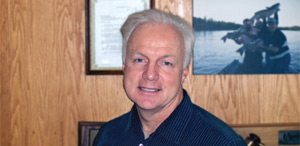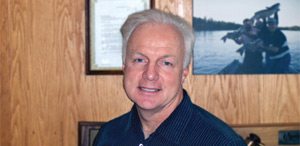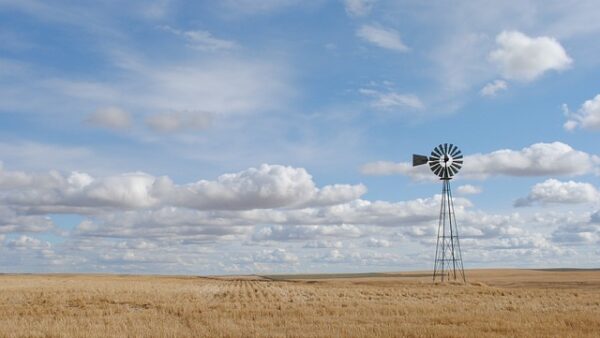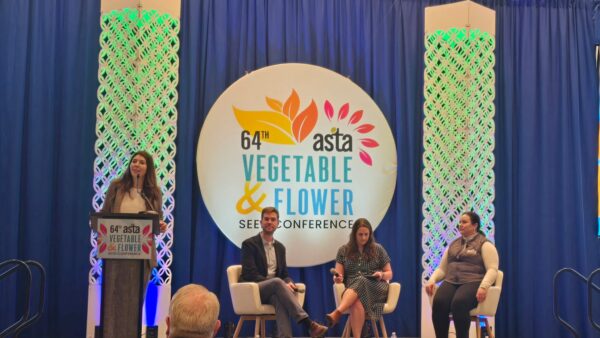CSGA Award Winners
Honourary Life Awards
Colleen Acres was raised on a dairy, sheep and crop farm south of Ottawa. She and her husband, Dwayne Bazinet, and sons Mitchell, Taylor and Kieran now operate a 500-acre farm south of Ottawa, where they grow corn, soybeans, mixed grain and hay for their 450-ewe flock. After graduating from Queen’s University with a Bachelor of Arts degree, Acres joined the CSGA staff in 1990. During her 11 years at CSGA, she served on the Education and Publicity Committee, edited Seed Scoop, issued grower mailings and appraised crop applications and crop reports. In 2001, Acres became assistant executive vice-president of the Canadian Seed Trade Association. She left this position in 2006 when an opportunity to expand the farm operation arose. Acres represents the CSGA on the Canadian 4-H Council and participates in the Ottawa Valley Seed Growers organization as a member of the Seed Show Committee for the Ottawa Valley Farm Show.
André Comeau has worked as a germplasm developer with Agriculture and Agri-Food Canada in Quebec City for 41 years, specializing in disease-resistant cereal germplasm. Parental material from his program has been introduced into 20 Canadian cultivars of oats, barley, wheat, rye and triticale. In collaboration with AAFC research centres across Canada, CEROM, a producer-supported research centre in Beloeil, Que. and EMBRAPA-CNPT, Brazil, he is currently working to perfect a new method for germplasm development that will accelerate the genetic progress, making it more cost-effective. Comeau earned his Ph.D. in entomology from Cornell University in 1971. From 1980 to 1995, he worked in partnership with Laval University on inter-specific crosses and haploidy of wheat and barley, leading to the creation of a few more cultivars in collaboration with private companies in Quebec. He sits on the pathology team of the Prairie Recommending Committee for Wheat, Rye and Triticale.
Graham Scoles’ interest in agriculture began as he worked in his family’s wheat and barley fields in the county of Norfolk, UK. He attended the University of Reading, taking a one-year break to work in the wheat breeding program at the Plant Breeding Institute in Cambridge. He completed his graduate work in plant breeding at the University of Manitoba. He was hired as a cytogeneticist by the University of Saskatchewan and has been a professor of Plant Sciences since 1979. In the mid-80s, he obtained training in molecular genetics/biotechnology which led to his working with barley breeder Brian Rossnagel on genetic mapping of barley. That project ultimately led to the Crop Development Centre’s barley and oat programs being among the first in the world to utilize molecular marker assisted breeding, and all recently released barley and oat cultivars were screened at the DNA level for various traits. During his career at the U of S, Scoles developed the first course on the application of plant biotechnology to plant breeding, supervised over 30 graduate students and has been heavily engaged in the debate relating to genetic engineering of crops. He served for a few years as head of Plant Sciences and has been Associate Dean (Research and Graduate Studies) for the College of Agriculture and Bioresources since 2001.
Robertson Associate Awards
Vern Alderdice was born on a farm at Redwing, near Meaford, Ont., where his family grew grain and raised cows, pigs and a flock of hens. After completing high school, and working at the Bank of Toronto for about five years, his passion for farming took over and Alderdice bought a farm in the Kippen area, married Mona and started his family. He followed in his father’s footsteps, growing wheat, barley, corn and white beans, and kept cows, pigs and hens. Alderdice became a DeKalb corn seed dealer, and joined the CSGA. Buying farmland when the opportunity arose, he enlarged his cattle and swine operations. Active in his community and church, Alderdice served as chairman on the Tuckersmith Communications Board. When his son, Garry, finished school, they made the decision to produce only cash crops. Garry is also a CSGA member, and recently Garry’s son, Geoffrey, also bought a farm. The Alderdice family has a crop rotation of wheat, corn and soybeans. Vern recently retired from active farming.
Jacques Beauchesne is founder and president of Semican Inc., a company in Plessisville, Que., which produces and markets a full line of farm seeds and horse feed products. Beauchesne grew up in the area, on his family’s dairy farm. In 1976, the family decided to sell off their herd and grow grain. Shortly after that, they switched to seed production because it returned a higher profit per hectare. Almost 30 years later, Semican now employs 70 people, with 2,400 acres in production. A research team headed by plant breeders develops new varieties, with 25 cereal cultivars to its name. Semican’s main crops are oats (covered and hulless), barley, wheat and soybeans, along with a full line of forage seeds. The company’s main customers are in Quebec, eastern Ontario, New Brunswick and the northeastern U.S. Beauchesne is proud of the role his company has played in the triumphs of racehorses around the world. In 2006, horses fed a diet of Semican’s Equavena hulless oats won three of the biggest horse races in North America: the Belmont Stakes, the Preakness and the Breeders’ Cup Classic, as well as, in 2007, the Dubai World Cup. Semican’s products are exported to the U.S., United Arab Emirates, Puerto Rico and Kuwait, earning the company the Canadian Agri-Food Award of Excellence.
Dan Brown learned the business of farming on his family’s farm near Petrolia, Ont., where they raised sheep and cattle, and grew corn, soybeans, wheat and hay. In 1976, Dan graduated from the University of Guelph with a major in crop science and a minor in animal science. Brown and his father grew their first seed crop—barley—in 1976 and continued to grow seed crops for the next 33 years. They saw seed production and processing as an opportunity to become more specialized in their farm practices. Growing soybeans, oats, barley and winter wheat, Brown became a select seed grower to have access to new varieties, and for many years, he annually grew 12 select soybean and two wheat varieties. Brown and his wife operated Inwood Seed and Grain for 25 years, and were innovative and successful in sourcing, testing, promoting and licencing over 20 private soybean lines, naming varieties after many of their family members. Brown became a director with the Ontario Seed Growers’ Association in 1990, then president in 2007. This was an honour for Brown, and he tried to fill the shoes of the many respected seed growers who were past-presidents.
Robert (Bob) Wiens and wife, Ruth, farm 25 miles south of Winnipeg. Wiens started farming in 1970 after graduating with a diploma in agriculture from the University of Manitoba. He got into the seed business accidentally in 1972, by renting some land that was producing pedigreed timothy. This experience led him to grow other pedigreed crops, including cereals, pulses and oilseeds. In 1978, he set up his own seed cleaning facility. His involvement in the seed industry allowed him to spend six years as a SeCan director, and he was a member of the CSGA board from 2002 to 2009. The Wiens are actively involved in their church and organize a growing project for the Canadian Foodgrains Bank. This involvement led them to participate in a CFGB learning tour to several countries in Africa where they saw how local crops are produced.
CSTA Award Winner
CSTA Honourary Life Membership Award

Lloyd Dyck, co-CEO of BrettYoung Seeds in Winnipeg, has made his mark on the Canadian seed industry through running his company, serving on the CSTA executive and representing the Canadian seed industry on various international seed associations during his 34-year career. One of his most memorable moments came during the Canada-U.S. free trade negotiations. Prior to this time, all Canadian red clover and alfalfa seed shipped to the United States had to be stained with one per cent purple seed. Dyck was reviewing the documents that were to be signed by the President and Prime Minister the next day. He noticed there was no mention of the elimination of this requirement, so he called CSTA executive director Bill Leask, who contacted officials in Washington, D.C. As a result, the document was retyped at the White House that night.
Dyck grew up working weekends at BrettYoung, where his father, Peter, was then employed, cleaning burlap bags, bagging seed and loading trucks during the winter and in spring and fall helping seed or harvest the crop on the farm. He studied Commerce at the University of Manitoba, but left to start his career in the seed industry in 1977 with BrettYoung, two years after his father bought the company. He jokes, “There were two employees, my father and me. He golfed in the morning and I golfed in the afternoon.”
During his first year at BrettYoung, Dyck did everything from answering the phone, to writing contracts and invoices, to bookkeeping. The next year he helped plan the construction of the company’s new seed plant and became general manager when the plant opened.
When Dyck was serving as CSTA president in 1994/95, he realized that many of the services the federal government had previously supplied to the seed industry were about to be cut, or service fees levied. It became apparent that if the seed industry were to remain competitive, it would have to assume delivery of many of these services. After looking at several models, and with the support of the CSTA executive and the CSGA, he and Bill Parks presented their recommendation to the membership for the creation of the Canadian Seed Institute.
“Lloyd was not only generous with his own time to make contributions to the CSTA, but has been a strong supporter of the participation of other BrettYoung employees within CSTA. In fact, BrettYoung holds a record for commitment to the CSTA. BrettYoung (employees) consistently serve on the CSTA board of directors; in leadership positions on CSTA committees; at the international level with the ISF and the Seed Association of the Americas; and four CSTA presidents have come from the ranks of BrettYoung.”—Wayne Unger, vice-president of forage and turf at BrettYoung, and current CSTA president.













